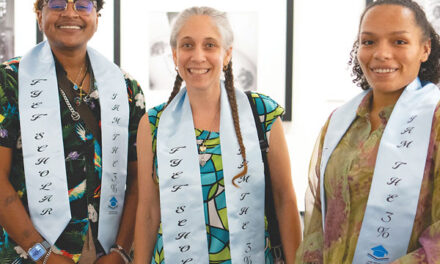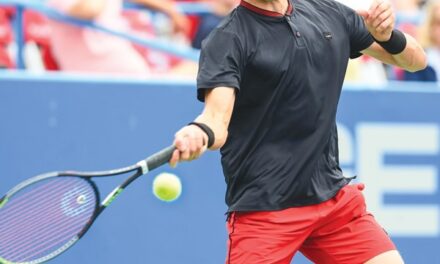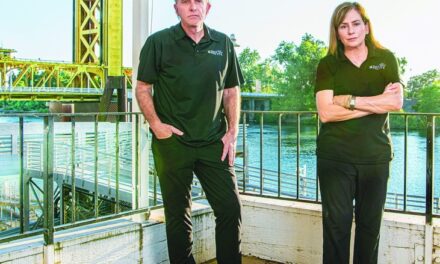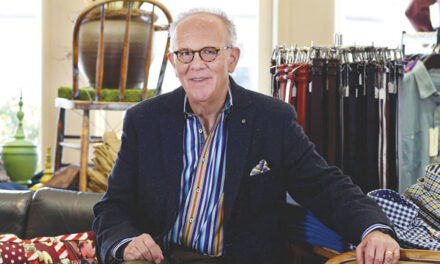Jenson Brooksby is worth watching this summer. Look for him at Wimbledon and the U.S. Open tennis tournaments.
At the 2021 U.S. Open, Brooksby played Novak Djokovic, one of the world’s best players. Djokovic won in four sets, but Brooksby took the first set 6-1. At age 21, Brooksby showed courage and resolve on the center court at Arthur Ashe Stadium.
The day after that match, I learned Brooksby was from Sacramento. A woman I played tennis with told me she and her husband purchased Brooksby’s family home in Sierra Oaks. When they bought the house, they noticed dents in the garage door, evidence of young Jenson’s practice sessions.

When Brooksby won his first ATP Tour title in April in Houston, he wrote a first-person essay about a tennis pro’s life on the autism spectrum. He wanted to share his story with the world.
“I started the event as a qualifying wild card and faced at least one match point in three separate matches,” he wrote. “That is as big of a challenge as you will face on court, but I found a way to win the title. One of my biggest goals since becoming a professional tennis player was to earn an ATP Tour trophy. Accomplishing it meant the world to me.”
Brooksby returned to the tour this year after multiple wrist surgeries, a shoulder injury and a suspension for missing drug tests. But challenges were nothing new.
As a child, he was diagnosed on the severe end of the autism spectrum. About one in 100 children are diagnosed with autism spectrum disorder, a number that’s grown in recent decades.
“For my entire life, I kept my diagnosis quiet,” he says. “In just a few months since going public, I have received so many positive messages from people, whether it has been on social media or from fans in person.”
After one match, a girl approached him and described how important it was to have Brooksby as a role model.
“Growing up, I never had someone with a similar story to look to for inspiration, so this truly resonated with me,” he says.
Brooksby was nonverbal until age 4. He went through intensive therapy for 40 hours per week. The therapy, called Applied Behavior Analysis, improves specific skills and reduces challenging behaviors.
“When I was younger, there were a couple times when people did not necessarily say something, but you could get a sense of what they were thinking about me based on their actions. In social situations in school, I was always a little more introverted. I wasn’t the most social person and didn’t make friends as easily as others,” he says.
Jenson’s parents are Dr. Glen and Tania Brooksby. Glen is an anesthesiologist. Tania was a competitive swimmer. The couple enlisted tennis coach Joseph Gilbert to guide their son’s training. The coach previously taught the elder Brooksbys.
Jenson learned early about his diagnosis. His parents were open about it.
“A majority of what I heard about the disorder growing up was through conversations I would hear between my parents and experts, which would make me think about it more,” he says. “Looking back, I am glad that I knew because the earlier in life you find out, the more prepared you are for the future and the better you can manage it.
“It was not always easy, though. You would sometimes be nervous about potentially being judged, especially negatively. But there are certain things in society that people have become more comfortable discussing today, which is what helps make telling my story easier.”
From his earliest years, Jenson paid great attention to detail. He says, “My brain is wired to focus on fewer things than others, but to do it well. When other young kids might have done something for a few minutes and moved on, I would hit a tennis ball against the garage door for an hour without a problem. Not only was I able to focus on it, I just really enjoyed it, and that is a big reason why I fell in love with the sport.
“I always wanted to be transparent about myself. I thought if I would be able to move past storing this inside, there was potential to really help other people.”
Cecily Hastings can be reached at publisher@insidepublications.com. Follow us on Facebook and Instagram: @insidesacramento.















